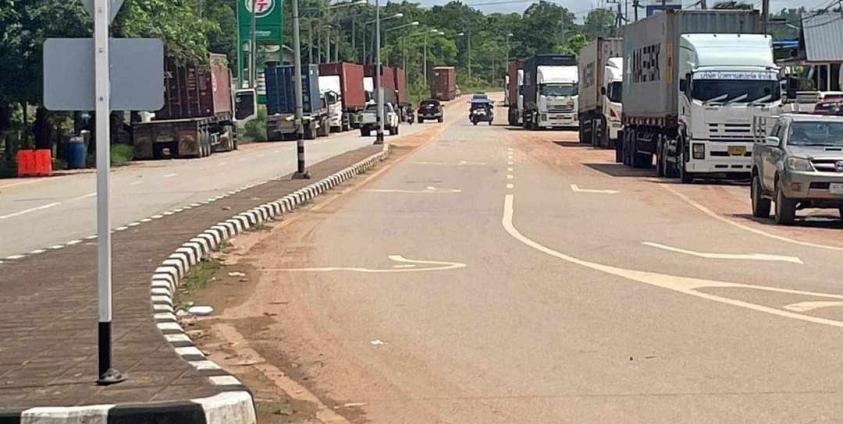Despite the temporary closure of the Payathonzu (Three Pagodas Pass) border trade post on the Thailand-Myanmar border, traders have maintained their import and export operations by compromising with a local armed group, the Democratic Karen Benevolent Army (DKBA) .
The border trade post has been closed since June 17, with Thai authorities promising to reopen it within 10 days after negotiations are completed. However, in practice, the post has remained closed for over 15 days, significantly disrupting the flow of goods and resulting in shortages of some items.
With shipments using large 12-wheelers currently halted, some traders are resorting to smaller vehicles like SUV trucks to continue trade operations by any means possible, while those who cannot afford to compromise have had to stop their trading activities.
“From what we can tell, the likelihood of reopening the trade post remains very low. There are reports that the Thai side is willing to reopen the trade post this month, but the attitude of the Myanmar side is still unknown. Currently, the trade post is closed, but with some under-the-table compromises, passage is still possible. For small trucks, which normally cost about 700,000 MMK in tolls, we now need to pay about 1.2 million MMK. Drivers who can't afford to pay this extra amount have to halt their business operations”, a truck driver told IMNA.
Passage through the trade post for Myanmar workers and school buses to the Thai side is only allowed between 6:00 am and 9:00 am and between 4:00 pm and 9:00 pm daily.
The current situation has caused a significant gap between imports and export volumes, leading to exponential price increases and severe shortages of certain items, some people who import goods from Thailand remarked.
The head of the customs department in Sangkhla Buri District on the Thai side informed Thai media that Myanmar authorities proposed closing the Payathonzu trade post for 10 days starting from June 15.
Payathonzu trading post is not officially recognized as a border crossing between the two countries but operates based on informal agreements with Thai authorities for importing and exporting goods.








